Delegate Hoang Van Cuong ( Hanoi delegation) said that the important new point of the draft is to strengthen decentralization and delegation of power in price stabilization and price control of goods. According to the delegate, price stabilization policies and guidelines need to be issued at the provincial level, where there is sufficient authority and capacity for general management. The commune level does not issue its own policies but only has the role of organizing implementation, monitoring, detecting and reporting irregularities in the process of implementing price stabilization measures in the locality.
Delegate Hoang Van Cuong also highly appreciated the addition of regulations on price management in public service sectors such as aviation, education , healthcare, etc., but the delegate said that the draft still lacks a clear mechanism for declaring and checking prices for essential goods that have a great impact on people's lives.
The delegate emphasized that for items subject to price declaration according to regulations, businesses or sellers have the right to set their own prices but must declare, register and publicize the prices with the management agency, and comply with the registered prices. In case of market fluctuations, for example, when goods are scarce, sellers are not allowed to arbitrarily increase prices abnormally for profit. When there are signs of price increases exceeding the declared level without objective factors, the competent authorities will conduct inspections, checks and handle according to regulations.
“In other words, the right to set prices belongs to businesses, but it comes with the responsibility to declare, publicize and be responsible for the registered prices. If they want to adjust the price, they must re-declare, and when the increase is unreasonable, without clear changes in market factors, the management agency has the right to review and handle profiteering behavior,” delegate Hoang Van Cuong stated.
Delegate Tran Van Lam ( Bac Ninh delegation) requested the Drafting Committee to clarify the decentralization and delegation of power in implementing price management. The delegate agreed with the decentralization in accordance with the two-level local government model, but emphasized the need for detailed and specific regulations to ensure harmony between decentralization and power control, avoid the situation of "each place has its own price", and at the same time strengthen confidence in the overall stability of the market.
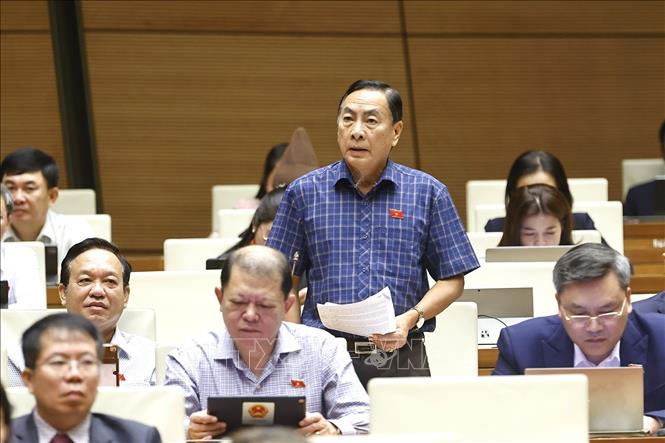
National Assembly delegate of Dong Thap province Pham Van Hoa speaks at the meeting hall about the Draft Law on Enforcement of Criminal Judgments (amended) on the morning of November 12. Photo: Doan Tan/VNA
From a practical perspective, delegate Pham Van Hoa (Dong Thap delegation) said that stabilizing prices of essential goods for people's lives is very necessary. The delegate suggested that the Government clearly define the list of goods subject to price stabilization, such as food and foodstuffs, and clarify the responsibility of local authorities in price management and coordination with ministries and branches in the implementation process.
According to the Government's Submission, this draft amended Law transfers the responsibility for implementing price stabilization from the People's Committees at the district level (as assigned by the province) to the People's Committees at the commune level; supplements and adjusts the list of goods and services whose prices are determined by the State; unifies regulations on specialized price inspection with the law on inspection; and updates the names of ministries, branches and competent agencies to match the new organizational structure.
Notably, the draft Law also adds provisions on infrastructure services in industrial parks, economic zones, high-tech zones, concentrated digital technology zones and industrial clusters invested from the state budget, and includes them in the list of goods and services priced by the State. Accordingly, the People's Committee at the provincial level will have the authority to set specific prices to ensure consistency, reduce administrative procedures and increase local initiative.
Strengthening decentralization and delegation of power in the price sector is expected to help localities be more flexible in management, promptly respond to market fluctuations, and at the same time ensure a roadmap for "correctly and fully calculating" public service prices according to State requirements.
Source: https://baotintuc.vn/thoi-su/lam-ro-hon-phan-cap-phan-quyen-trong-binh-on-gia-20251112090959975.htm





![[Photo] Prime Minister Pham Minh Chinh receives Lao Minister of Labor and Welfare Phosay Sayasone](https://vphoto.vietnam.vn/thumb/1200x675/vietnam/resource/IMAGE/2025/11/11/1762872028311_dsc-2246-jpg.webp)


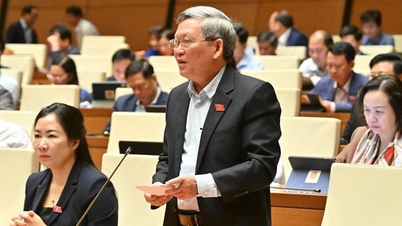







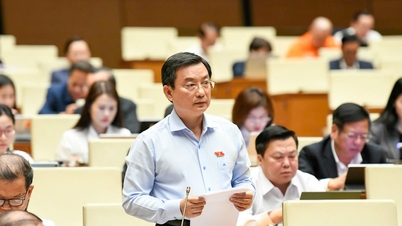






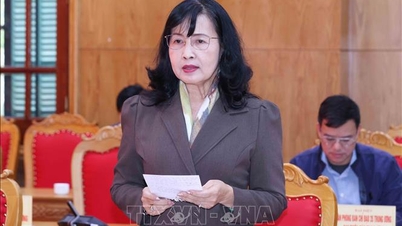

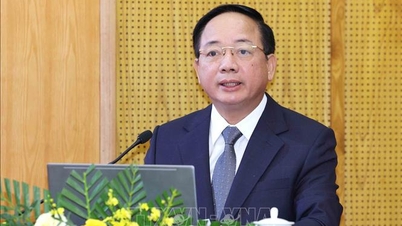







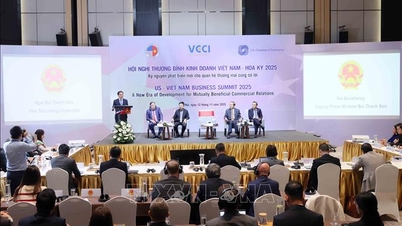
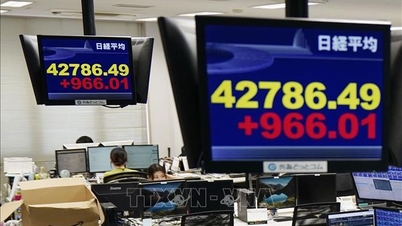







































































![Dong Nai OCOP transition: [Article 3] Linking tourism with OCOP product consumption](https://vphoto.vietnam.vn/thumb/402x226/vietnam/resource/IMAGE/2025/11/10/1762739199309_1324-2740-7_n-162543_981.jpeg)








Comment (0)